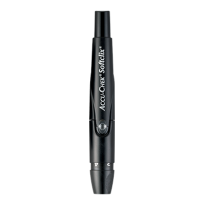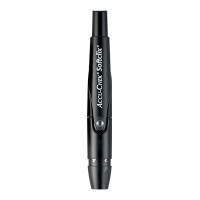
The
11 penetration depth settings
0.8 to 2.3 mm
Precise lancing, less risk of skin damage
0.4 mm
21 g
- Virtually pain-free lancing
- Clixmotion technology controls the lancet’s movement
- Less side-to-side motion of the lancet means less skin damage
- Turn the rotatable cap for 11 penetration depth settings for different skin types
- The
Accu-Chek Softclix lancets are precisely manufactured for precise entry
11 fixed-depth options, set with the rotatable cap
0.8 to 2.3 mm
Clixmotion Technology
21 g
AST cap provided
0.4 mm
28
Silicon
The
- Pull off the cap. Insert a new lancet into the lancet holder and push it in until it clicks.
- Press the cap on again until it clicks.
- Rotate the cap until the desired penetration depth is set.
- Press the priming button down until it clicks.
- Press the lancing device firmly against the side of the fingertip.
- Press the yellow release button.
- After measuring your blood glucose, pull off the cap and slide the ejector forwards to remove the lancet.

